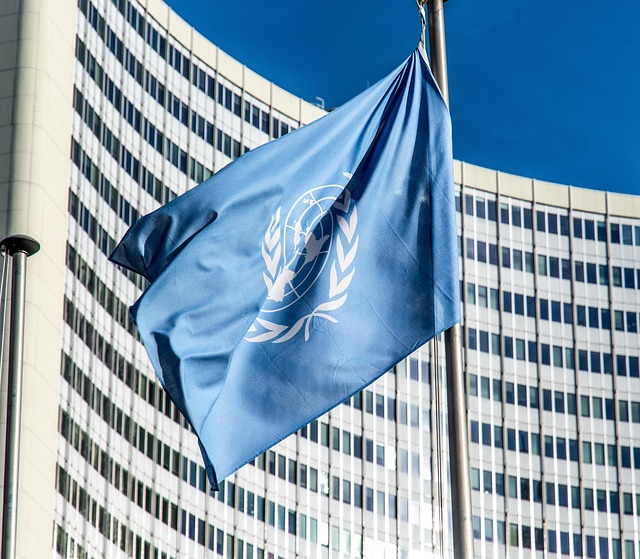Surrogacy laws for foreign parents vary widely globally, impacting eligibility, consent, and protections for surrogates, parents, and legal professionals. Navigating these laws requires specialized legal guidance for ethical practices, adherence to constraints, fairness, security, and successful outcomes. Comprehending unique country regulations, using comprehensive contracts, and consulting experts ensure parental rights, smooth transitions, and unconditional love for surrogate-born children.
Navigating surrogacy laws for foreign parents involves understanding complex legal frameworks worldwide. This comprehensive guide explores key aspects, from eligibility criteria to post-birth rights, in different nations. Learn how contracts and agreements protect all parties involved while ensuring a successful surrogacy journey. As global families embrace this option, understanding these regulations is crucial for a smooth process.
Understanding Surrogacy: Legal Frameworks and Permissions
Surrogacy, a complex process where a woman agrees to bear a child for another party or couple, is governed by a intricate web of legal frameworks globally. These laws vary drastically across countries, impacting not only the rights of surrogates but also prospective parents seeking surrogacy as an option for building their families. For foreign parents considering surrogacy, understanding these surrogacy laws for foreign parents is paramount. Each nation establishes its own rules and regulations, delineating eligibility criteria, consent requirements, and legal protections for all involved parties.
Navigating these legal frameworks involves a deep dive into local legislation and international agreements that may apply. Understanding the complexities requires professional guidance from attorneys specializing in surrogacy laws for foreign parents to ensure ethical practices and adherence to legal constraints. This meticulous approach ensures fairness, security, and successful outcomes for families navigating the intricate path of surrogacy across different jurisdictions.
Eligibility Criteria for Foreign Parents in Different Nations
In the global landscape of surrogacy, understanding the eligibility criteria for foreign parents is paramount. Surrogacy laws for foreign parents vary significantly across different nations, reflecting diverse cultural, ethical, and legal perspectives. While some countries welcome foreign couples with open arms, offering straightforward paths to parenthood through surrogacy, others impose stringent restrictions or outright ban the practice, complicating the journey for prospective parents seeking alternative means to build their families.
Factors that influence eligibility include marital status, citizenship, age, financial stability, and medical fitness. Some countries permit only married couples to access surrogacy services, while others may offer options to single individuals or same-sex pairs under specific conditions. Financial requirements often manifest as income thresholds or proof of sufficient funds to cover the costs associated with surrogacy. Moreover, medical evaluations are mandatory in many jurisdictions to ensure the safety and well-being of both the surrogate and the intended parents. Navigating these complexities is crucial for foreign parents embarking on their surrogacy journey, necessitating meticulous research and consultation with legal experts specialized in international surrogacy laws.
Contracts and Agreements: Protecting All Parties Involved
When considering surrogacy as an option for building their families, foreign parents must understand that each country has its own set of surrogacy laws and regulations. One crucial aspect of navigating these laws is the importance of comprehensive contracts and agreements. These legal documents serve as a protective measure for all parties involved – the surrogate mother, intended parents, and any medical professionals or agencies associated with the process.
Well-drafted contracts should clearly outline the rights, responsibilities, and expectations of each party, ensuring transparency and minimizing potential disputes. They must cover key elements such as compensation arrangements, parenting rights, legal recognition of parentage, and medical guidelines. Moreover, these agreements provide a framework for addressing unforeseen circumstances or changes in plans, offering a level of security and assurance to all participants in the surrogacy journey.
Post-Birth Rights and Responsibilities for Surrogate Families
After a baby is born through surrogacy, understanding the legal rights and responsibilities of all involved parties—the surrogate mother, intended parents, and the child—is crucial for a smooth transition into family life. In many countries, surrogacy arrangements are governed by strict laws that delineate these post-birth obligations. For foreign parents considering international surrogacy, comprehending the local surrogacy laws regarding parenthood rights is essential. These legal frameworks often specify the official recognition of parental status, custody agreements, and support obligations for all parties involved in the process.
In some jurisdictions, surrogacy laws grant automatic citizenship or residency rights to children born via surrogacy, ensuring they are legally recognized as part of their intended family. Conversely, other countries require additional legal procedures, such as adoption, for foreign parents to establish official parental ties with their surrogate-born children. It is vital for prospective parents to consult legal experts experienced in surrogacy laws for foreign parents to navigate these complexities and ensure they fulfill all necessary requirements to raise their child legally and love them unconditionally.
Navigating surrogacy laws for foreign parents involves understanding complex international regulations. By exploring legal frameworks, eligibility criteria, contracts, and post-birth rights, prospective parents can make informed decisions. This comprehensive approach ensures that all parties involved are protected, fostering a successful and legally sound surrogacy journey.
